How Strathfield massacre gave rise to terror cop Peter Moroney’s career
Peter Moroney grew up watching his policeman dad’s career, but it was the impact of a suburban mass shooting on their relationship that fuelled his desire to follow in his father’s footsteps. NEW POLICE TAPE PODCAST
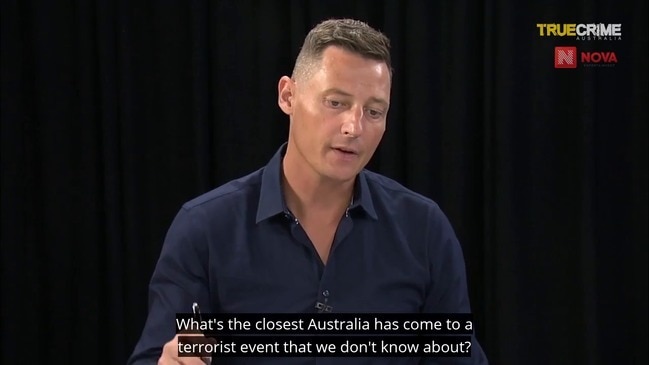
Police Tape podcast
Don't miss out on the headlines from Police Tape podcast. Followed categories will be added to My News.
As a kid, Peter Moroney wanted to be a jockey, but by the time he finished school at more than 6ft tall and barely able to ride a horse, he was considering other options.
At the time, his father Ken Moroney was a police sergeant based at West Wylong in the NSW Central West, and Peter grew up around the station and particularly the yard of wrecked vehicles from car accidents behind the station home.
Extremists: Terror threat from hate-filled sleeper cells ‘increasing’
There were a lot of truck and car accidents in that district and a lot of call-outs for his dad, but it was in 1991, on a posting to Sydney, that he knew he absolutely wanted to follow in his father’s footsteps when a call came in about what would become known as the Strathfield massacre.
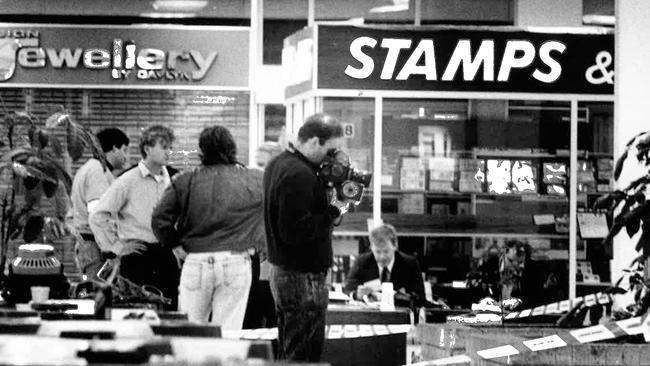
“I still remember to the day when the phone call had come in, and you can certainly tell by his demeanour on the phone that things had shifted fairly significantly,” Moroney recalled of the day 33-year-old taxi driver Wade Frankum went on a shooting rampage at a shopping mall in Strathfield in Sydney’s inner west.
Frankum killed seven people and wounded six others before taking his own life.
“It was one of the first times that I did ask him, you know, along the lines of ‘everything all right’, sort of thing, and he said that some person had just, sort of, cut loose at Strathfield and massacred several dozen people, and it struck me because he’d for so long, I suppose, protected me from the real world, if I can put it that way,” Moroney said of his father.
“It was, sort of, one of the most prominent times when it hit me, and I thought okay, it probably sounds a little bit odd, but it is a bit of a turning for him and I, in the sense he now starts to talk to me, or started to talk me a lot more anyway, about that graphic sort of things that he saw.
“He was always a fairly quiet man, very seldom brought work home that we would see. I’m probably sure my mum would think different, but, yeah, as a child we seldom saw it at all.”
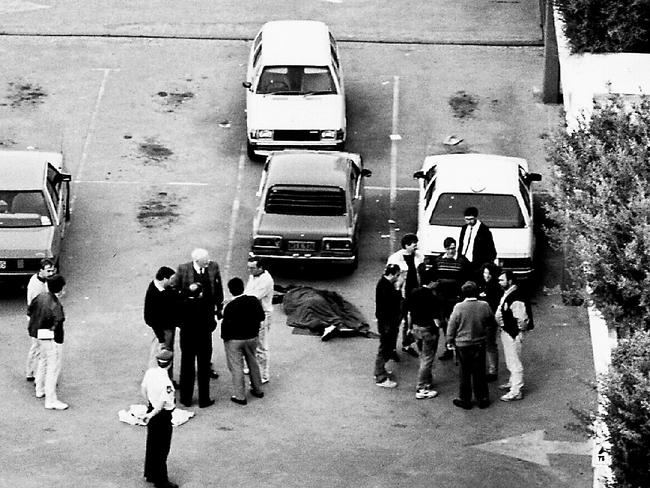
Peter Moroney would join the police force in 1994 as his father rose up through the ranks to eventually be appointed police commissioner. So with a father, an uncle and two brothers in the force Peter felt a little pressure to succeed.
“I put the pressure on myself, I think, that you had that father who had done reasonably well in his career by the time I joined and, you know, there was always that thing that, as a father myself now, you always want to make your father proud — you certainly don’t want to undo any of his legacy at all.
“So it certainly brought that pressure about, but, it was funny, when I did join there was myself and there was probably about six other people that were either senior police or senior politicians’ kids, so it sort of balanced out a little bit in the academy.”


Moroney worked on homicide and drugs investigations and in a specialist unit looking at internal corruption before, in 2003, he joined a new unit known as the Counter Terrorism Command, set up in a post-9/11 terror attack era and amid emerging threats in Australia after our involvement in the first Iraq conflict.
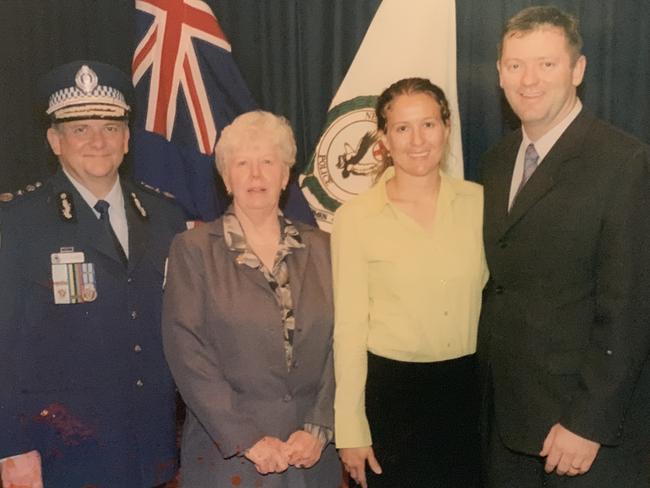
MORE FROM POLICE TAPE
Leap of faith: Dicey move as stolen tank threatens city
‘Won’t save lives’: Bitter pill for drug testing advocates
Contract to kill: Gang’s crazy price on two cops’ heads
Shootings: Inside the crime family feud that terrorised a city
‘He choked me’: Hutchence lover’s shocking revelation
Moroney undertook intensive studies and work with overseas counterparts in terrorism-related human source recruitment in countries including France, Lebanon and the US and became one of the leads for the later high-profile, multi-agency Operation Pendennis, at the time Australia’s largest terror investigation, which busted linked terror cells in Sydney and Melbourne plotting mass casualty attacks.
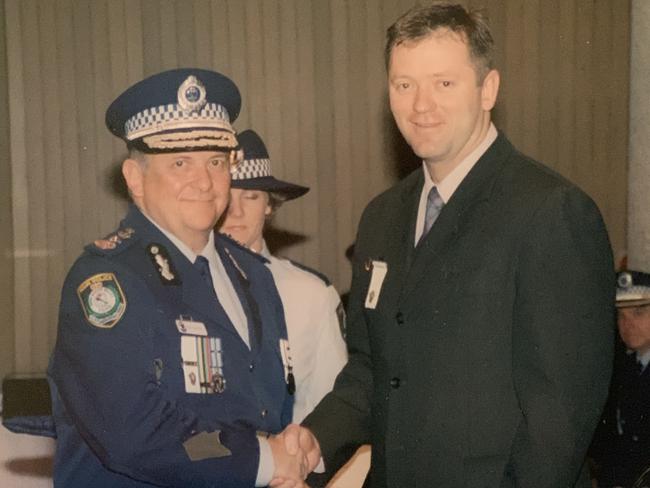
He would retire from the NSW Police in 2011 as a detective sergeant after almost 18 years in the service and was credited with having designed and developed the force’s terrorism investigations course.
For the past seven years, he has worked in private investigations for insurance companies and been involved in several state and federal government agency probes. From his police training experience, he has also since designed several security-related accredited courses for the Australian Institute for Security and Investigation Training, and is an adjunct lecturer for Charles Sturt University, where he teaches investigations management.
Originally published as How Strathfield massacre gave rise to terror cop Peter Moroney’s career
